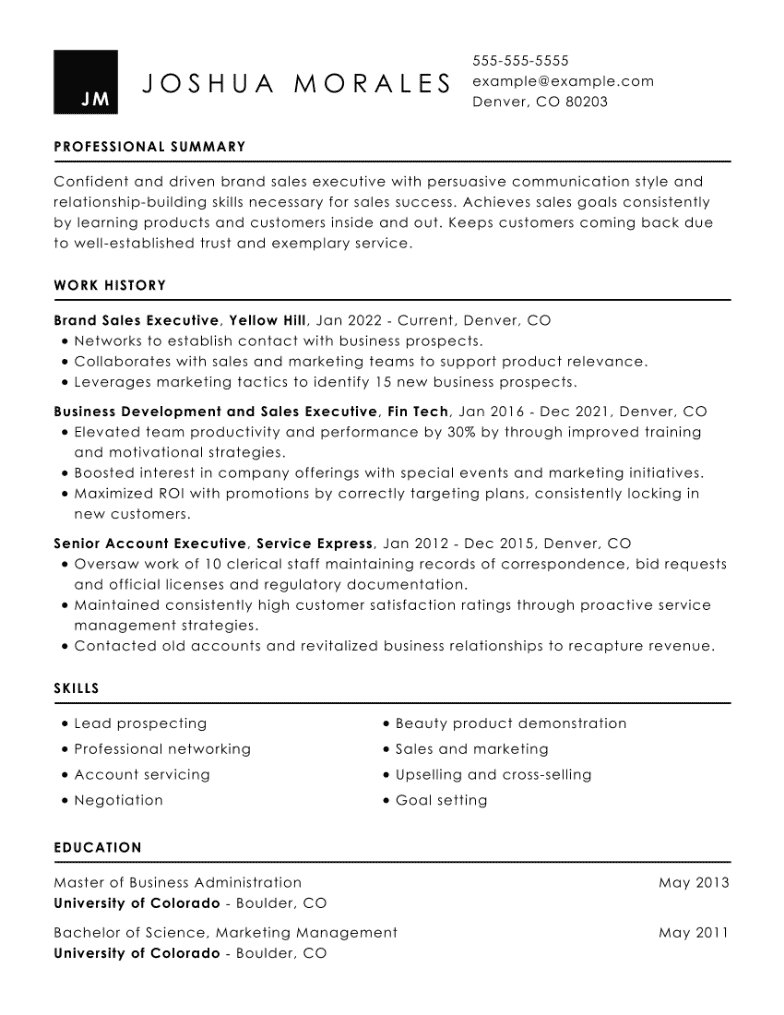Executive CV Examples and Writing Tips
Ready for a more professional executive CV? Use our CV examples, CV samples and writing tips to land your next leadership position.
Ready for a more professional executive CV? Use our CV examples, CV samples and writing tips to land your next leadership position.





OUR USERS HAVE BEEN HIRED BY

Every position inside a company has to be filled via job search, and this includes executive positions. If you’re looking to become a senior executive, then you need to know how to make the most of a CV just like anyone else. Here’s how you can create a professional CV for this high-level position.
Understanding who uses an executive CV can help you understand what you should talk about. Here are a few of the jobs in the “C-suite” that would use an executive CV.
These jobs require different competencies and certifications, but they all tend to be part of a board of directors and have a huge impact on how a company functions on a day-to-day basis.
Your executive CV structure will depend partially on what CV format you use. Most executive CV examples use the chronological format, which emphasises work history, but you may also use the functional format, which showcases skills, or the combination format, which highlights both. Regardless of the format, you’ll be using the same sections, just with different structures.
Your header goes at the top of the CV and includes your full name, contact information including phone number and email address, and any related links such as your LinkedIn profile URL.
A professional summary is an encapsulation of your skills and work history. For an executive job, this typically means detailing some top metrics you’ve achieved, how many years of experience you have and what you’ve done in the past.
A career objective isn’t normally used for an executive-level CV, but for more entry-level applicants. A career objective is a professional summary with the addition of goals and a statement of what you want to accomplish with your CV.
Your skills section needs significant management skills. After all, as a member of the so-called “C-suite,” you’re essentially going to be managing people. Executive recruiters want to know that you have these skills and that you can transfer them to a new position and a new company.
In this section, highlight skills and qualifications that show you have the know-how to direct your company’s development, which could include high-level skills like budgeting, business development and conflict resolution.
Every executive should display an extensive work history. Although you might not have a history that’s exclusively in the executive field, you should include work experience revolving around project and product management, and initiatives you’ve taken in previous jobs that resulted in success. Make sure you feature experiences that connect with the needs of the company you’re applying to.
Not every executive position needs an extensive education section, but don’t forget to include your college or university information (name, location, major) and any related certifications, credentials and degrees. and credentials.
You should include an executive cover letter alongside your CV. Most of the time, for a position of this importance, a cover letter will be required. However, even if it isn’t required, a cover letter gives you a chance to showcase your personality and further discuss how you fit the job.
Although you need a lot of experience for an executive position, it’s not restricted solely to executive experience. If this is the first C-suite job you’re applying for, then make sure you showcase how the skills and experience you built up in previous jobs make you the right candidate for the job. Highlight your experience and achievements in jobs that align with the executive job you want, even if they’re not a perfect match.
CV keywords will help you apply to different jobs while getting past applicant tracking systems (ATS) that employers use to screen out applicants that don’t meet certain criteria. Read the job description to learn what skills and requirements are most important for the specific application. Then apply this knowledge to your CV. You can also use the CVHelp CV builder, which then makes it easier for you to update your CV and save different versions of it for different jobs.
We personalize your experience.
We use cookies in our website to ensure we give you the best experience, get to know our users and deliver better marketing. For this purpose, we may share the information collected with third parties. By clicking “Allow cookies” you give us your consent to use all cookies. If you prefer to manage your cookies click on the “Manage cookies” link below.